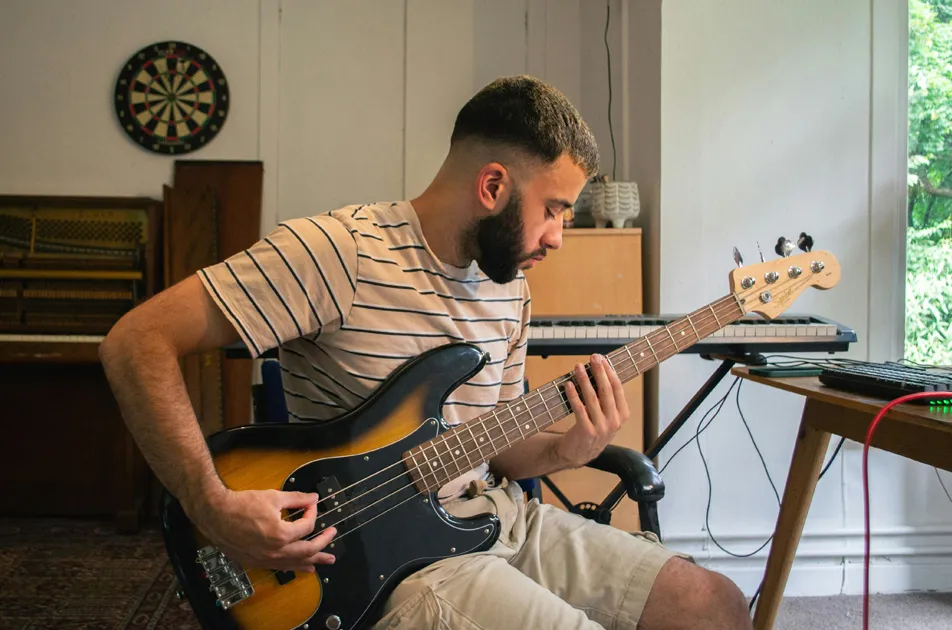In part five of this Artist Development series, we move past managers, producers, and publishers to look at the role which an entertainment attorney plays, both within the development team, and more broadly within the artist’s career as a whole.
__________________________________________
Guest post by Camille Barbone of the Symphonic Blog
Part 5 of our Artist Development Series
In this series, we’ve covered artist managers, record producers, music publishers and record labels as members of the artist’s development team.
Now, we’re moving on to the role an attorney takes on within the artist development team and in an artist’s career.
If you are being asked to sign a legal document, one that is heaped in legal language and cross-referenced terms and conditions, the need for legal counsel is essential. Many excited and anxious artists have signed a document that turned out to be a nightmare for their career, their peace of mind, their bank account, and even worse, ended their career.
This stage in an artist’s life is incredibly important. Entering a contract is serious and you should never sign a legal document unless you are 100% sure of its implications, ramifications and limitations for the short and long-term. Sometimes a seasoned member of your team, usually the artist manager can help break down the terms and provide adequate guidance, but only an attorney can provide legal advice. So, at the very least, buy two hours of an attorney’s time and get a professional review and summarization prior to executing the contract.
What Entertainment Attorneys Do
Most business sectors are governed by specific laws, procedures and practices that are indigenous to the industry. If you’re an artist or individual working in entertainment and need legal advice, it behooves you to select an attorney that has studied and gained experienced in the very unique and quirky business of music. Laws that impact the entertainment industry include a mixed bag of federal and state guidelines in addition to rules like the Music Modernization Act which was created by a government agency. An entertainment attorney must also be well versed in common law, meaning legal precedents created through case-based decisions that have been ruled upon in the past. Transactional as well as litigation law experience is also included in the bag of tricks an entertainment attorney must have on hand.
Entertainment attorneys are tasked with protecting the rights and intellectual properties of clients by handling deal negotiations on behalf of their clients.
- They secure talent contracts, legal releases and negotiate fee arrangements for a wide variety of deals.
- In addition, an entertainment attorney often serves as a connector between their artist clients and other branches of the entertainment profession, working to create strategic relationships with artist managers, agents, record companies, music publishers, tour promoters and other sources of artist’s income and exposure possibilities.
- They oversee memberships in unions, guilds and other professional organizations.
- If there is a legal relationship, an attorney should be reviewing, drafting, negotiating and finalizing binding contracts.
Some attorneys specialize in shopping artists to record companies, booking agencies, music publishers and other related industries. They maintain strong ties to the A&R departments or to individuals in senior management positions. While they may be licensed as legal professionals, they are, in essence, acting as an agent, business manager or even an artist manager. They may not be great negotiators or well versed in contract law, so be careful with this type of relationship because there are built in conflicts to consider. If the “shopping” attorney is pitching you, they are pitching other artists as well, so it’s important to find out who they’re representing and if it will result in internal competition.

There is a saying in the music business that pokes fun at the “shopping” attorney. It states that, “an attorney that thinks he or she has “ears” and can pick hits and stars is a danger to themselves and others.” I am certain that there are some attorneys that do have great ears, but commercial music and star power is a far cry from legal briefs, case precedents and brawling litigation skills. Secure the services of a great manager, with great contacts for your “shopping” needs and secure the services of a sharp minded and silver-tongued legal eagle to negotiate and propose the best possible deal for you.
Certain attorneys specialize in litigation and all too often in the music industry, this type of talent is sought after and regularly taxed to the limit. There are too many litigious individuals and companies in this industry. Couple them with a plethora of naïve and trusting artists and you have the proverbial accident looking for a time and place to happen . This is the nature of the beast and if you find yourself in need of an attorney to take on a major record company or publisher, you best find the biggest SOB on the block to represent not shop you.
——————–
Learn more:
Starting a Band is Starting a Business
Legal Contracts for Artists and Bands
Types of Legal Contracts for Music Producers
——————–
What to look for in an Entertainment Attorney
- Your entertainment attorney must have enough experience to protect you, represent you and be willing to help you lay the legal foundation for your development as an artist.
- Your attorney must understand all aspects of the music industry as well as related businesses such as recording, publishing, live performance, licensing, endorsements, cross over industries like film and television and other sources of artist development.
- He or she also needs to understand business development which will aid artists in launching and maintaining a successful, lucrative and hopefully a problem free career.
Beyond experience, entertainment attorneys should have solid working relationships with other industry professionals. They should represent other professionals within the industry and know who and what they do.
This makes for smoother and faster negotiating and deal making.
Consider the fact that there are a handful of powerhouse law firms on the music scene. These are the practices that are Olympic level power brokers. They represent top selling artists, high level executives, successful companies, top music producers, booking agents and music publishers. They charge “buku” bucks for their services and are quite selective as to who they represent because they are capable of breaking down so many barriers. Their reputations as top gun negotiators are very well-known and very coveted.
But fear not, you can still get these giants of industry on your team by hiring their in-house minions, the firm’s junior partners and associates who are working their way up to partner level and that coveted corner office. These newbies are usually available at a lower per hour rate, but you will still get top notch legal services. They have a have a lot on the legal ball to be hired by the boutique firms. They also have access to the big guns of the firm if additional power and clout are needed.
The Cost of a Good Entertainment Attorney
Experienced and skilled entertainment attorneys cost a lot of money. Try $200 an hour and up for representation but sometimes they are willing to work on a flat fee, per project or contract basis. The rate of services is always proportional to the amount of experience and clout of the attorney as well as the notoriety of their firm and client roster. If they have a big reputation, you’ll be billed big numbers, but the reach may be worth the climb. You just have to know when the time is to bring in the gun slingers and pay to play. You’ll have to gauge your legal needs with your professional ones.
In discussing the cost of legal representation and what you are willing to spend for the services of a good entertainment attorney, it is time for you to heed a warning. Never, never pledge a percentage of your gross income to a pay for your legal services. The cost of professional services should not become another fat slice that cuts into an artist’s revenue pie. You should pay for the services rendered. You should maintain a clean working relationship with an attorney and not cloud the issue or set yourself up for conflicts of interest.
Try to negotiate your fee as low as possible but again, don’t compromise when the stakes are high.
When you need the services of an Entertainment Attorney
If you are up to your butt in entertainment industry action with lots of opportunities bubbling to the surface or it’s necessary to take legal action against someone who’s in the business, it’s time to hire an entertainment attorney.
The legal professional will assess your situation, review the terms of the contracts you want to enter into or get out of, go after the individual that has allegedly stolen your intellectual property, figure out your rights within an agreement or defend you if another music industry individual is coming after you for any number of reasons. If you are not sure of your needs, pay for a consult and get an expert opinion. Don’t try to figure it out yourself. Don’t do a Google search. Go directly to the specialist for guidance and the various remedies for your given situation. When an attorney drafts a legal and binding agreement for you with terms, they should fit your specific situation.
When an attorney negotiates an agreement for you, the resulting terms and conditions should be appropriate, protective and favorable. Think about what you want from this important relationship. Match the skillset and experience of the attorney with your specific needs. I know I have made this statement a few times in this episode, but the importance is vital to your success.
It is not about saving money. It is all about winning.
The Rules of the Road for Entertainment Attorneys
At the top of the list when retaining an entertainment attorney is conflict of interest. This is due to the fact that attorneys can represent many clients in many different sectors of the entertainment industry or related businesses. Sometimes, attorneys have clients that are planning to go into business together or one has offered the other a contract or they find themselves in a legal battle. The usual practice in this type of situation is for the attorney to notify the parties of the conflict and one, usually the newest client, opts to seek legal representation elsewhere for the current situation. As strange as it may seem, clients often prefer to remain with their attorney and are willing to sign a waiver of conflict that lets the attorney off the hook to represent them both. The waiver document says that all parties are aware of the nature of their working relationship with the attorney and are still willing to move forward with negotiations regardless of the obvious conflicts. It is puzzling to understand why someone would deliberately place themselves in a blatant conflict of interest situation, but stranger things have happened in legal wheeling and dealing.
Ethical behavior should be at the core of every business relationship and attorneys, though licensed by various Bar Associations and pledging to ethical standards, sometimes fall from grace. There is always the bad apple who seems to have been absent the day they covered ethics in law school. Stay away from them no matter what the perceived upside to working with them is. Ethics is part of a list of regulations, called Model Rules that govern attorney behavior. Simply put, Model Rules define the actual duties an attorney must perform.
- Check out a lawyer’s credentials, search for ethics violations, search out big wins, and find out if they have represented clients in situations that are similar to yours.
- Look for reviews on services You can find them on many consumer websites. There are also aggregate legal services websites that provide lists of attorneys, usually sorted by specialty that include reviews from clients.
- In addition, these sites sometimes offer “peer reviews” whereby attorneys review the services of other attorneys, their peers.
You are buying a service. You need to get what you want and what you are paying for. Be informed on an attorney’s reputation, taking into consideration the experiences of clients and peers in the industry.
Don’t be lazy. Take the time and do your homework.
An attorney must represent a client with knowledge, energy and pure advocacy. They must keep their clients informed at all times and maintain strict code of confidentiality. Both the attorney and client must share the goal that is bringing them together. This goal must be mutual. It must be well defined, and the preferred and ideal outcome must be clearly stated and agreed upon. You can’t always get what you want, but you can try to come as close as possible.
In closing, an attorney is a vital member of the artist development team. He or she is responsible for setting the legal guidelines for all members of the team and the legal documents generated are integral to keeping things peaceful, progressive and focused between the artist and the team.
Do you really need an entertainment attorney?
The answer is yes, but at the right time and dictated by the right circumstances.
If your career is growing, developing and opportunities abound you cannot wait. If you are just starting out, you might be able to wait, at least until you find and sign to an artist manager. Bite the bullet, take care of yourself as a creative entity. Take care of your intellectual properties. Guard against art predators.
Be safe. Get legal representation.
Camille Barbone is an entertainment industry professional with over 25 years of experience. She has worked for major companies including Sony and Universal, Warner Chappell and other major publishers. She has owned two state of the art recording studios, developed and managed high-profile artists such as Madonna, produced major concerts and provided music for major motion pictures producers such as Wes Craven, Steven Spielberg Productions and Cinepix Films. She has conducted numerous seminars, panels and workshops at SXSW, the New Music Seminar and other entertainment conferences. She has been featured in many books and has appeared on many news and talk shows. She holds a degree in Psychology and an MBA specializing in Marketing. Camille coaches and consults via her company, Camille Barbone Coaching and Consulting, a business that provides guidance and structure to individuals and companies aspiring to success in the Entertainment Industry. She guides people through viable planning and constant progress. Please contact Camille at office@camillebarbone.com





